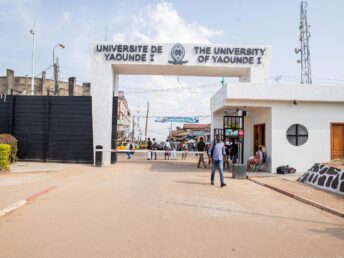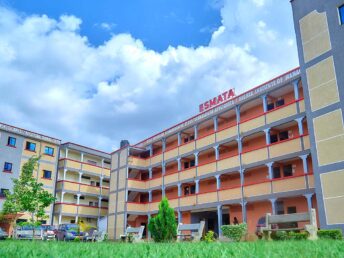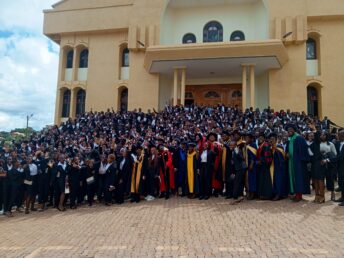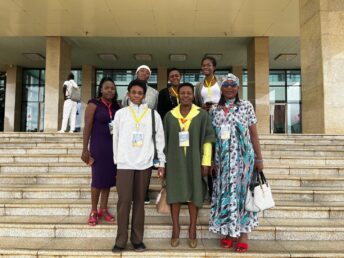Having a graduate degree is an excellent way to become an even more capable professional and impress the market. With a postgraduate degree on your resume, you will reach your career goals and get the attention of any recruiter, which is why it is so important to invest in your education. If you work in the biological field, a great option is to specialize in biotechnology .
Specialization in Biotechnology
Since Biotechnology is the area of science that uses molecular biology and genetic engineering techniques to improve compound production or improve living organisms, it has a great market demand.
In this context, being a professional specialist in Biotechnology puts you ahead of competitors in selection processes . Your resume will draw attention, demonstrating that you have the scientific and technological skills necessary to work in sectors that use living organisms and bio molecules in technological processes, with a focus on the production of inputs and services.
course objectives
The main focus of the specialization is to ensure that the professional completes the course capable of solving problems, bringing innovation and improvement to processes and projects, always in an ethical, sustainable manner and in line with technological advances.
For this, the graduate program was designed to allow students to:
- Assess the environmental impact of biotechnology activities;
- Know how to explore biodiversity, with its local varieties, with a focus on adding value and innovating;
- Manage to contribute to the development of nanotechnology for application in agribusiness, in particular controlled releases and encapsulation techniques, and to the bio process industry for renewable fuels and various chemicals;
- Develop appropriate technologies for the production of enzymes on a large scale, through fermentation and extractive processes;
- Integrate knowledge of exact and biological sciences;
- Create, modify, apply and evaluate waste and industrial effluent treatment processes, aiming at preserving the environment and complying with current legislation;
- Apply and evaluate safety procedures and standards in the work environment.
complete curriculum
All these skills will be developed throughout your academic journey, based on the video classes available for you to follow whenever and wherever you want. They will be organized and divided into the following disciplines:
1 - Biochemistry
In the Biochemistry discipline, you will be introduced to the following topics and concepts, which are essential for the rest of the course and will ensure your understanding of the main cellular components, the mechanisms for obtaining energy and the speed control of cellular metabolism:
- Water and its effects on Bio-molecules;
- Organic Bio molecules: amino acids, peptides, proteins, enzymes, carbohydrates, lipids, nucleic acids;
- Carbohydrate metabolism: respiration and fermentation;
- Process of metabolic regulation.
2 - Cell Biology and Microbiology
Upon completion of “Cell Biology and Microbiology”, you will have gained knowledge of the chemical composition of the cell, cell wall, plasma membrane and cytoplasmic organelles. Bacterial morphology and cytology, nutrition and genetics of microorganisms, general characteristics of yeasts, fungi and viruses, mechanisms of cultivation and identification of bacteria and yeasts and genetic engineering of yeasts.
3 - Enzymology
See below all the topics covered in the videos:
- Enzymatic reactions
- Kinetics of Enzymatic Reactions
- Enzyme activation and inhibition
- Industrial production of enzymes: process steps, extraction and purification of microbial enzymes
- Bio prospecting
- Production of microbial enzymes
- Industrial applications of enzymes
- Immobilization of enzymes
4 - Fermentation processes
In the subject “Fermentation Processes”, you will learn about ideal and real reactors, bioreactors and their technologies, fermentation technology, microbial growth kinetics and other topics.
They include biochemistry of fermentation, Pasteur and Contra Pasteur effects, analysis of the importance of aeration and agitation, biomass production, obtaining fermented foods, medicines, ethanol, the concept of bio refineries, and cultivation of plant and animal cells.
5 – Genetic Engineering
In order to study the field of Genetic Engineering, professors of this course will address the introduction to genetics, molecular biology techniques, cloning, genomic and cDNA libraries, screening of libraries for gene isolation and expression of recombination proteins in heterogeneous systems.
Other topics present in the video classes will be genetically modified and transgenic organisms, gene silencing, applications of genetic engineering in the biotechnology and bioethics areas.
6 – Bio and nano materials
See the complete content of the Bio and nano materials specialization classes:
- Bio materials: definition and classification;
- Fundamentals and history, modern use of biomaterials and the future;
- Biomaterials and biological response;
- Mechanical properties of bio materials for applications in internal and external prostheses;
- Metallic, ceramic and polymeric bio materials;
- Introduction to nano science and nanotechnology;
- Types and classification of nano materials;
- Petrochemical synthesis of nano-structured materials;
- Nano structured films;
- Magnetic nano materials;
- Polymeric matrix and lamellar clay nano composites;
- Characterization techniques of nano-structured materials;
- Incorporation of nano-structured materials and the environment.
7 - Quality and productivity management
In “Quality and Productivity Management”, you will have access to the entire historical and conceptual background of productivity, quality control circles, definition of work organization and physical arrangement, production planning and control, and statistical process control (ZIP CODE).
Other topics covered will include PERT and CPM techniques – and material requirements planning (MRP), and just in time, Kanban and Kaisen rationale and management indicators – Key performance indicators (KPI).
8 – Biofuels and biomass
At the end of the “Biofuels and Biomass” course, you will be able to analyze and discuss the specificity, properties, conversion technologies and development of biomass technologies, solid, liquid and gaseous bio fuels, as a source of energy and the existing barriers to larger scale implementation.
Plant species for the production of bio fuels, for the production of alcohol and bio diesel, environmental, social, technological and economic aspects for bio energy are also part of the programmatic content.
9 – Career management
The course also has a discipline to address knowledge related to Career Management and the evolution of work in the contemporary world. More specifically, it will address the following topics:
- Area of professional activity
- Role of the professional in the current scenario and the implications of this role in professional training
- Current labor market conditions and their implications
- Work evolution strategies
- Self-knowledge
- The career and its stages of development
- Career planning and action plan to pursue personal and professional goals







